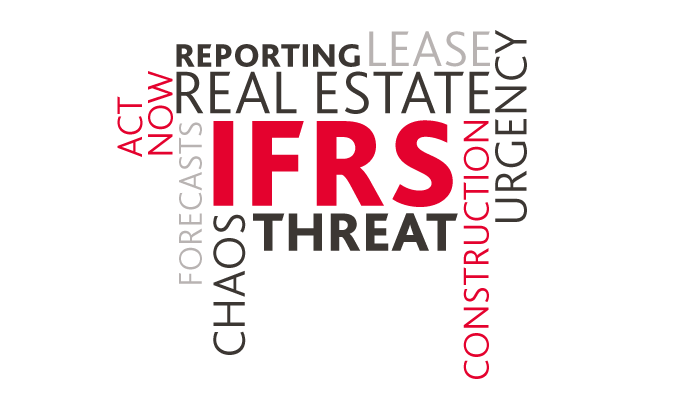
Original content provided by BDO Global
This time last year, BDO Global posted a blog entitled ‘New IFRS standards 9, 15 and 16 set construction and real estate accountancy teams their greatest challenge in decades’. One year on, we now ask, how have RE&C companies done? Why have so many RE&C companies failed to prepare for IFRS 15, 9 and 16?
Accounting for revenue in the real estate and construction (REC) sector has always posed unique challenges – dealing with the complexity of bundled interrelated goods and services, the determination of when revenue should be recognised and vendor guarantees and financing.
The publication of IFRS 9, 15 and 16 represented a ‘triple whammy’ that threatened to throw financial reporting in the REC sector into chaos. In last year’s post, BDO Global advised that the three rules be tackled as a whole so as to minimise the period of disruption as much as possible; it also suggested that leaving the implementation of the three standards until 2018, would result in a metaphorical train crash. Now, with just months left on the clock before IFRS 9 & 15 come into effect in January 2018, has the REC sector heeded our advice?
The REC sector comprises a number of distinct sub-sectors: construction, commercial development, residential real estate, property management, REITs, and real estate agency. Each of these subsectors will be impacted by the IFRS changes in slightly different ways, thus presenting accountancy teams with a number of challenges. For example, within the construction sector, as well as the property management sector, IFRS 15 introduces complex rules about when revenue should be recognised and what distinct goods and services are provided to the customer. Meanwhile, the adoption of IFRS 9 will impact several processes and systems, such as the impairment process system for loans and receivables. Yet, despite this, many businesses have not made plans to implement IFRS 9, 15 and 16.
This is extremely worrying. IFRS 15 demands much preparation, as well as the implementation of multiple processes and systems, such as identifying contract modifications and linked contracts. Implementation will require extensive staff training to ensure success. Appropriate training must be identified and then delivered to both the accounts teams, operational managers and perhaps more importantly to the sales teams; thus allowing them to understand the new requirements and work effectively with new or modified accounting systems and processes. As IFRS 15 impacts client contracts, not only do accountancy teams need to be trained in its intricacies, so too must frontline staff.
Indeed, IFRS 15 may have a number of broader business impacts that many have failed to consider, such as investor relations, financial reporting and payment of remuneration. Some worldwide jurisdictions – such as Malaysia, Singapore and Canada – are obliged to issue Q1 results. These results must reflect the impact of IFRS 9 and 15. Most REC entities will release Q1 2018 forecasts or HY 2018 forecasts. These forecasts must reflect the impacts of IFRS 9 & 15. It is likely that these forecasts will be released very soon after the release of the December 2017 annual reports and stakeholders must be provided with all the information they need to understand the impacts that IFRS 9 and 15 will have on the company and its financial performance. This includes proper and adequate disclosure in 31 December 2017 Annual Reports.
The processes and systems involved in applying IFRS 15 and 9 should be up and running by 1st January 2018. Since the announcement of financial results to the market cannot be delayed, the implementation of appropriate process and systems is now urgent. It is imperative of continuous disclosure regimes that the market is kept properly informed, to make forecasts to the market of revenue and earnings for 2018 without including the impacts of IFRS 9 & 15 is likely to be pointless and at worst potentially misleading.
A further worry is that, in delaying implementation of IFRS 15, IFRS 9 will be forgotten in the ensuing panic. IFRS 9 will impact a number of processes and systems - including the impairment process system for loans and receivables. IFRS 9 requires accounting teams to fair value investments in shares or any financial asset that fails the strict test that allows it to be recorded at cost. IFRS 9 also offers businesses the opportunity to review their hedging strategy with regards to foreign exchange and interest rate exposures. Unfortunately, if companies have not yet put IFRS 9 in place, then this opportunity has already been lost.
IFRS 16 requires lessees to recognise nearly all leases on the balance sheet that will reflect their right to use an asset for a period of time and the associated liability for payments. The impacts of this standard will be felt differently by each REC subsector. For example, lease owners and property managers will need to guide their tenants through the changes to leases and rental payments; construction businesses will need to identify all the equipment that is being leased and include it on their balance sheet. Given the numerous complexities involved, companies should already be preparing for IFRS 16.
So, why are companies so recklessly ignoring the need to implement IFRS 9, 15 and 16? It is apparent that the global REC sector is largely oblivious to the true implications of these accounting standards; with companies believing that the urgency does not apply to them. It is imperative that these convictions be corrected, as REC businesses across the globe continue to underestimate the effort of applying the new standards and, in doing so, edge closer towards a train crash.